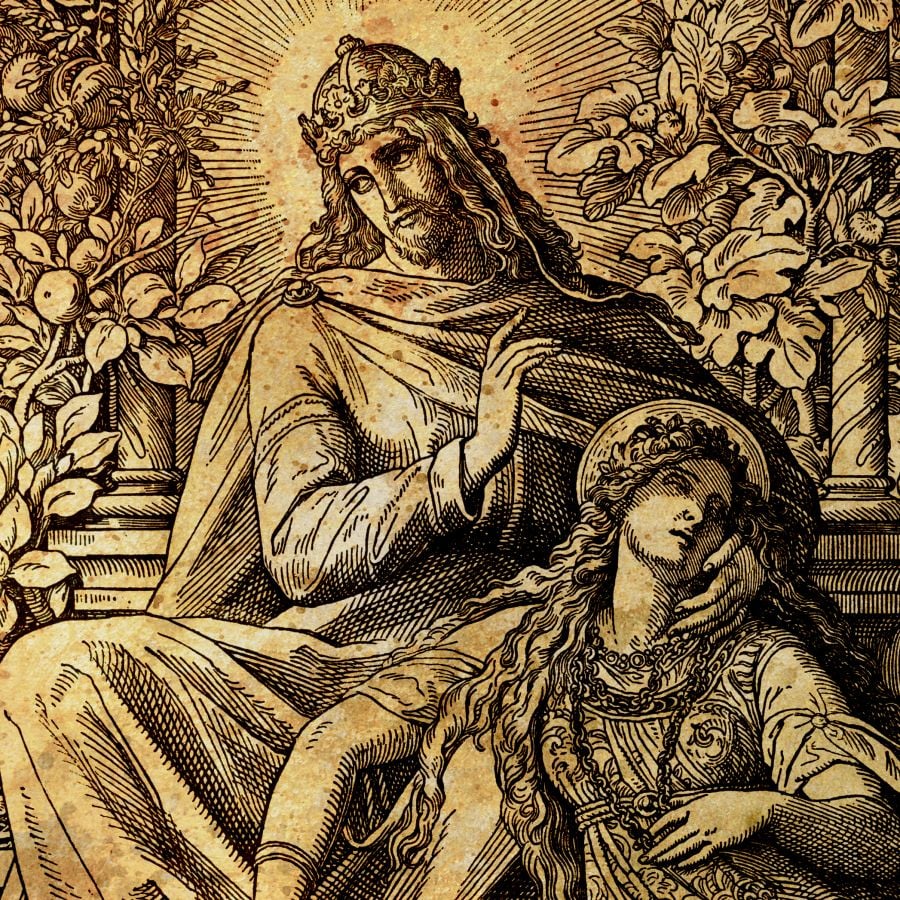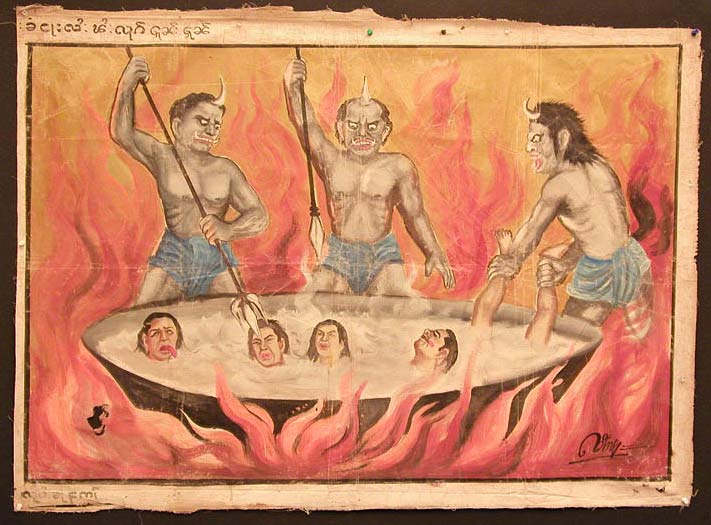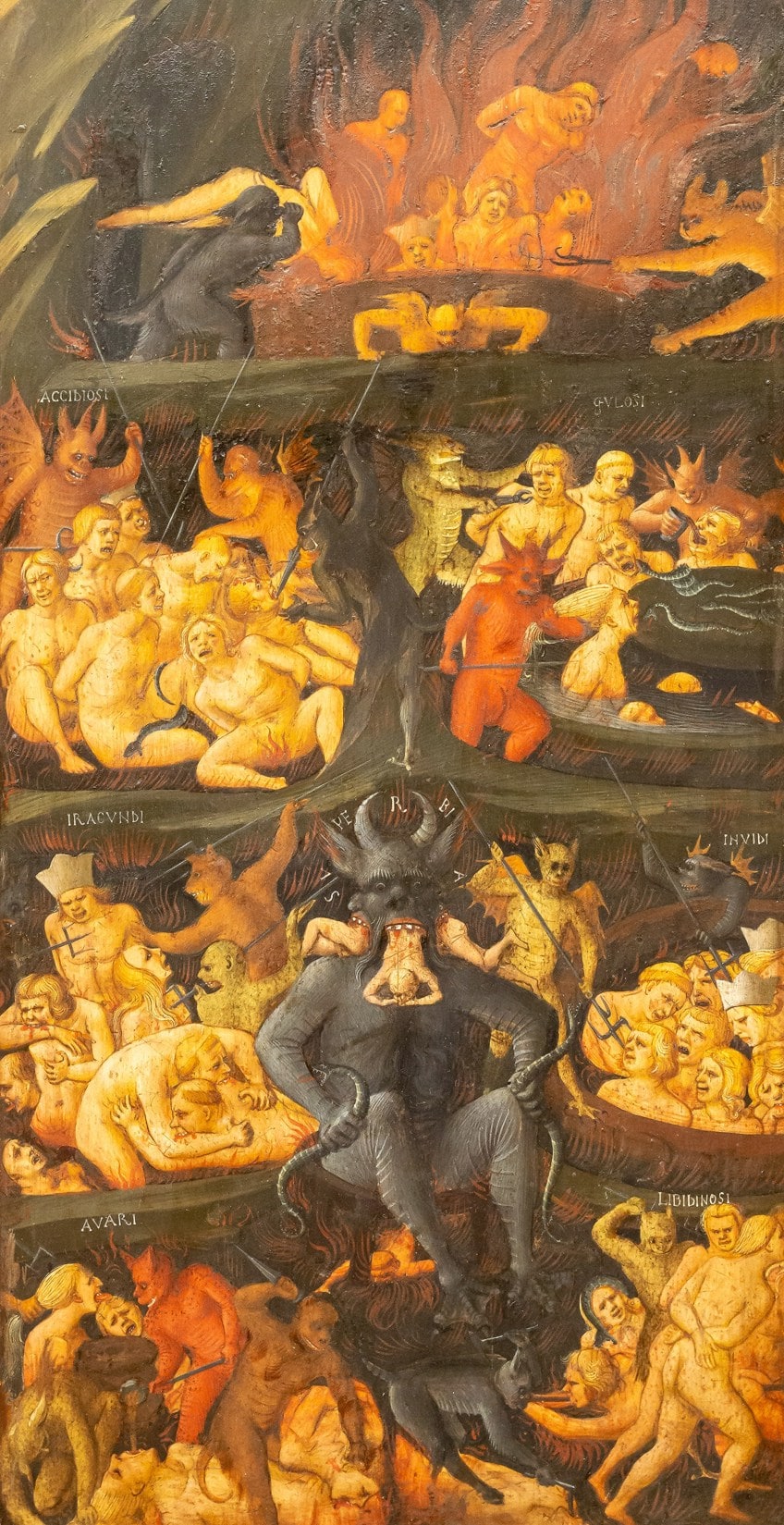 |
| Werewolf: Cronach the Elder |
We generally tell ourselves that nobody is beyond redemption until the point of death. It seems uncharitable to suppose otherwise. But is this clearly true?
In 1 John, the evangelist tells us there is no point in praying for someone who has committed a truly grave sin.
When the scribes and Pharisees appear at the Jordan for repentance, John the Baptist rejects them.
In the story of the rich man and Lazarus, Abraham says evangelization of the rich man’s relatives is useless: not even a miracle can make them repent.
And Jesus advises us not to cast our pearls before swine.
That actually sounds pretty cut and dried: some people are apparently beyond redemption.
Further evidence is a folk image found all around the world: of soulless beings in human form. The most familiar modern expression is the zombie—and it seems significant that we find the image so compelling. It speaks to something in our experience; we have all met zombies, NPCs. They are being played by some demon vice. The parasitic demon or idolatry has supplanted altogether their soul.
Vampires are a variation on the theme. Like zombies, they have no soul, and survive by draining others of life energy. That is how some people are. Like zombies, they are “undead.” In other words, they are still animate, but the soul has departed. It is perhaps already in hell.
Similar figures are the werewolf, the rakshasa in India, the wendigo among the Algonquins Indians, the Nephilim in the Bible, the witches and ogres and sirens and lamia and melusines of European fairy and folk legend. It is arbitrary to see them as distinct beings; they are different takes on the same being. They are spiritual portraits of people who have surrendered their souls to vice. Modern psychology calls them narcissists.
 |
| Lycaon transformed into a wolf. |
Lycaon, a figure in Greek legend, seems to have been the first werewolf. He was transformed into a wolf because he served u his own son as a meal—the wolf form was the outward expression of his true bestial nature. He had a beast’s soul.
“Ever since the time of Lykaon a man has changed into a wolf at the sacrifice to Zeus Lykaios, but that the change is not for life; if, when he is a wolf, he abstains from human flesh, after nine years he becomes a man again, but if he tastes human flesh he remains a beast for ever.”
On the mountain on which Lykaon killed his son, it is said, no man casts a shadow.
The rakshasa likes to kidnap and devour children. She can at will appear as a beautiful woman. She is driven by lust, gluttony, envy and anger, without restraint.
.jpg) |
| Lilith |
She closely resembles Lilith, the female demon of Judaism and the ancient Middle East. She was the first wife of Adam—so she must take human form. Unlike Eve, however, she is still around, devouring children—so undead.0
The wendigo lives in the forest and devours any human he encounters. He generally appears as human, but his spirit is that of a beast. He is a shape-shifter. “The wendigo is said to invoke feelings of insatiable greed/hunger, the desire to cannibalize other humans, and the propensity to commit murder in those that fall under its influence.”(Brightman, Robert A. 1988. "The Windigo in the Material World.)
The Nephilim are supposedly a human tribe.
“The Nephilim were in the earth in those days, and also after that, when the sons of God came in unto the daughters of men, and they bore children to them; the same were the mighty men that were of old, the men of renown.” – Genesis 6:1
“And there we saw the Nephilim, the sons of Anak, who come of the Nephilim; and we were in our own sight as grasshoppers, and so we were in their sight.” – Numbers 32
From these passages, the Nephilim are taken to be gigantic in stature. But perhaps this refers not to their physical size, but their self-image and boastful nature—their narcissism.
They were apparently prone to unbridled lust. “They married whomever they chose.” And they are the reason Yahweh sent the Flood to purify the world. He considered them beyond salvation.
Ogres are sometimes also thought of as giants; yet they are also able to make themselves small, and pass as ordinary people.
"I have been moreover informed," said the Cat, "but I know not how to believe it, that you have also the power to take on you the shape of the smallest animals; for example, to change yourself into a rat or a mouse; but I must own to you, I take this to be impossible."
"Impossible?" cried the Ogre, "you shall see that presently," and at the same time changed into a mouse, and began to run about the floor. (Perrault, Puss in Boots).
Despite the affection which he [the prince] bore her, he was afraid of his mother, for she came of a race of ogres, and the king had only married her for her wealth.
It was whispered at the court that she had ogrish instincts, and that when little children were near her she had the greatest difficulty in the world to keep herself from pouncing on them. (Perrault, Sleeping Beauty)
So again, the large size perhaps refers to their self-image. They too eat children, and male ogres rape women.
Sirens, mermaids, or lorelei may or may not be driven by lust; but they lure with lust. They are apparently driven by a desire to devour; as are lamia and melusines. They lure unwary suitors to their death. This resembles the “love bombing” familiar to those who have dealt with narcissistic romantic partners.
There are features common to most or all of these imaginary creatures.
They fear the light, and crave darkness. In other words, they hate the truth. Vampires are killed by sunlight. In the original zombie classic, “Day of the Dead,” the zombie assault actually takes place over one night. And the zombies fear fire—light. Werewolves transform and do their deeds at night, under the moon. Sirens and melusines hide their fishlike nature under the water line, emerge from the unknown depths, and will flee if their nakedness is uncovered—if they are seen in the bath.
Narcissists are enemies of the truth—it requires systematic self-delusion to submit to vice. One is hiding from conscience. This is why they attack anyone spreading pearls.
Light has come into the world, but people loved darkness instead of light because their deeds were evil. Everyone who does evil hates the light, and will not come into the light for fear that their deeds will be exposed. (John 3:19-20)
These various revenants are often suave or charming or superficially attractive. The female rakshasa, or the Melusine, lamia, or siren, generally can make themselves appear beautiful. The vampire is courtly, well-mannered.
Lacking conscience or ethics, narcissists are commonly charming in this way. They can say whatever is to their advantage; so they become skilled at manipulation. In other words, they are shape-shifters.
Several of them have the power to infect their victims with their vice: vampires and zombies do. Those who do not, directly and literally, often lure their victims by appealing to a vice: the lamia, the siren, the rakshasa. This is indeed true of the narcissist: he or she badly wants to lure others into vice. Moral behaviour in their presence is a threat to their conscience.
Many of these monsters seem to target children and the young. That is apt for narcissists too. It is not just that children are the most vulnerable victims; they are objectionable to the narcissist for their innocence and sincerity; as well as for the nagging thought that they might outlive the narcissist. Those they cannot tempt into vice they will persecute.
And so, while popular focus currently is on narcissistic love partners, the greater danger is the narcissistic parent.
There are zombies among us.



















.jpg)










